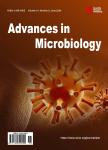Evaluation of the Microbiological Quality of Poultry Imported into Togo and the Antibiotic Resistance of Salmonella spp. Isolated
Evaluation of the Microbiological Quality of Poultry Imported into Togo and the Antibiotic Resistance of Salmonella spp. Isolated作者机构:Laboratoire de Microbiologie des Aliments de l’Eau et Produits Divers Institut National d’Hygiène (INH) Lomé Togo Laboratoire de Microbiologie et de Contrôle de la qualité des Denrées Alimentaires (LAMICODA) Université de Lomé Lomé Togo Laboratoire de Bactériologie Médicale de l’Institut National d’Hygiène (INH) Lomé Togo
出 版 物:《Advances in Microbiology》 (微生物学(英文))
年 卷 期:2023年第13卷第10期
页 面:499-516页
学科分类:0202[经济学-应用经济学] 02[经济学] 020205[经济学-产业经济学]
主 题:Imported Poultry Hygienic quality Salmonella spp Antibiotic Resistance Togo
摘 要:In Togo, despite the government’s efforts, food requirements in terms of animal proteins are not covered by national production and are subject to huge imports of meat products. However, the hygienic quality of these imports is not guaranteed for the consumer. The aim of this study was to estimate the frequency of unhygienically unsatisfactory imported poultry and to determine the antibiotic resistance profile of Salmonella spp. strains. A total of 285 samples of imported poultry, including 55 chicken thighs, 10 chicken backbones, 25 chicken wings, 5 whole chickens, 30 sausages, 35 chicken forequarters, 95 chicken drumsticks and 30 guinea fowl wings, were analyzed using standard AFNOR routine methods. The following germs were tested: Total Aerobic Mesophilic Flora (TAMF), Anaerobic-Sulfite-Reducing (ASR), Escherichia coli, Staphylococcus aureus and Salmonella spp. Antibiotic susceptibility testing was carried out on Salmonella spp. strains isolated using the agar disk diffusion method (CA-SFM). Results showed 100% compliance for TAMF, coagulase-positive Staphylococci and Escherichia coli. On the other hand, 3.84% and 2.46% non-compliance were recorded for ASR and Salmonella respectively. Non-compliance with hygiene rules is generally thought to be the cause of meat contamination. Seven 7 strains of Salmonella were isolated, 5 of which were of the OMA serogroup, and the other two of the OMB and HMB groups. Antibiotic susceptibility tests revealed resistance to certain beta-lactam antibiotics and quinolones, in particular: cefalexin (28.57%), cefoxitin (14.28%), cefuroxime (28.57%), ceftazidime (28.57%), ceftriaxone (28.57%) and nalidixic acid (28.57%). This result may be explained by the uncontrolled use of B-lactam and quinolone antibiotics in poultry farming. As Salmonella spp. is a pathogenic enteric bacterium that causes food-borne illness in humans, resistance to third-generation cephalosporins remains a major public health problem.



